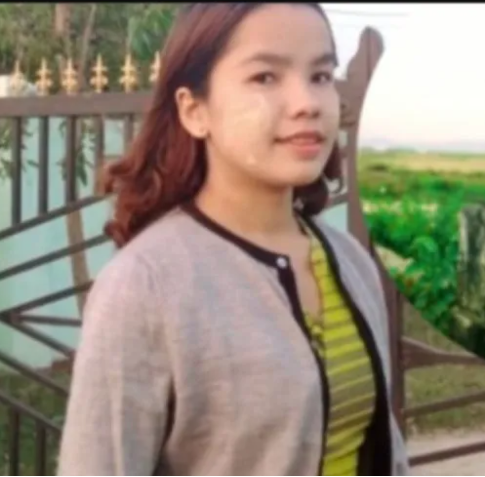An interview with Ma Nu Khin Aye, a resident of Lay Gwa Son village in Rathedaung Township, about the socio-economic situation of locals in Rathedaung Township, where fighting has resumed in Arakan State.
Rathedaung Township in Arakan State is the township where fighting firstly resumed between the Arakha Army (AA) and the military council army.
Fighting in Arakan State resumed when the AA attacked the Don Pike and Chang Khali border guard posts in Rathedaung Township on the early morning of 13 November 2023.
The AA took complete control of the entire Rathedaung Township after capturing Light Infantry Battalions-536, 537 and 538 on 17 March 2024.
It has been almost 9 months since the AA captured the entire Rathedaung Township.
Narinjara interviewed Ma Nu Khin Aye, a local woman from Lay Gwa Son (new village) in Rathedaung Township, about the current situation, employment and economy including socio-economic status of the people in Rathedaung Township.
Q: Thar Li Swa. What is the current situation of the residents of Rathedaung Township?
A: It is peaceful to live here. There are no thieves, robbers, or quarrels as before, which makes it very peaceful. However, locals are jobless. Not only women but also men have no work. They earn a living by cutting firewood and have to struggle for survival. They mainly work in paddy harvesting, firewood collection, and fishing. Some families grow winter season crops. Now that it’s rice harvesting season, most of them are busy with the harvest.
Q: How would you describe the living conditions of manual laborers in rural villages?
A: In my view, people are poorer than before because of the war. They have no jobs. Almost everyone has difficulties. Especially the elderly and children are begging for money and food. The people come from different areas, including Rathedaung, Pauktaw, and Ponnagyun.
Q: What did they reach such a state of begging?
A: They have no jobs, and many are in poor health. The main reason they have resorted to begging is that they were forced to flee their homes due to the military council’s bombardment of villages and towns. Some people have no relatives or anyone to take care of them, so they go into villages and ask for donations. These are often middle-aged women between 35 and 40, as well as elderly women. Most of the men who beg are elderly. Their livelihoods are extremely difficult, and they are unable to return home. They go into houses and ask for rice donations.
Q: Do the residents of Rathedaung help them?
A: Residents make donations. Although they don’t have much money themselves, they contribute a can of rice, 100 kyats, or 500 kyats. The people of Arakan State help each other as much as they can. Thanks to this, it hasn’t reached the point where people are dying from starvation, so far. They are just like us locals, and the community continues to support one another.
Q: Currently, employment is scarce. Are there any organizations providing assistance to people who are facing livelihood difficulties?
A: There are some aid organizations, but they are not sufficient as the number of IDPs exceeds thousands. Donations run out quickly after they are distributed, creating a cycle of scarcity. Life could be easier for them if they could return to their homes, lands, and villages. They feel tired from staying in others’ villages and houses. The main issue is that they don’t know what to do. The situation is even worse because they were already poor before the displacement.
Q: What other difficulties are the displaced people facing?
A: Except for rice, most other items are expensive. Medicines are costly, and while there are clinics, they are not sufficient to meet the needs. Commodity prices are high, but goods are more available than before. The cost of menstrual pads is high, and many women are unable to afford basic necessities such as underwear. These are essential items, yet out of reach for many. Makeup and Thanutkhar are also expensive, making life even more difficult for girls.
Q: Can the local residents of Rathedaung return to the town? What are the conditions for their return?
A: They are not officially allowed to reenter the town. The people from Rathedaung want to return home, as the displaced residents are eager to do so, but they cannot earn a living like the locals. The return is not possible yet because the AA is carrying out mine clearances, and the junta may bomb or fire heavy shells from Sittwe. However, they are allowed to visit their homes occasionally.
Q: Is paddy grown in Rathedaung this year? Are the farmers coping well?
A: Paddy is grown, but farmers cannot cultivate large areas. They need many inputs, but fertilizers are unavailable, and all inputs are expensive. This year, those who grow paddy are mainly producing it for their staple food. The necessary rice is being imported from Kyauktaw and MraukU.
Q: Is there anything else you would like to add?
A: I don’t have much else to say, but it’s saddening to see that most of the locals are facing difficulties. Officials need to create more job opportunities in the region. Right now, food is the most important concern.
Sent by Narinjara

